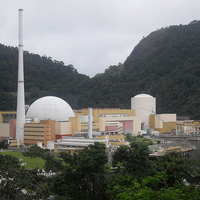Although Dilma Rousseff failed to secure an absolute majority in the first round of Brazil's presidential election, she seems certain to beat her rival Jose Serra in the run-off voting on Oct. 31 to become Brazil's first female president. As current President Luiz Inacio Lula da Silva's hand-picked successor, Rousseff represents policy continuity, and her likely victory shows the degree to which Brazilians are happy with the track their country is on. Yet one disturbing issue has been largely overlooked by both domestic and international commentators during the election campaign: Since 2004, Brazil has refused to grant inspectors from the International Atomic Energy Agency (IAEA), the U.N.'s nuclear watchdog, full access to its nuclear facilities, in violation of Brasilia's obligations under the Non-Proliferation Treaty (NPT).
Lula has justified this stance by arguing that Brazil has no intention of seeking nuclear weapons. Not only does the country's constitution forbid them, but Brazil is also a signatory to both the NPT and the Treaty of Tlatelolco banning nuclear weapons in Latin America.
Even taking Lula at his word, the fact that Brazil even allows such a discussion to take place negatively affects its reputation. If Brazil really has no intention of developing nuclear bombs, why does it not simply play by the international rules?

